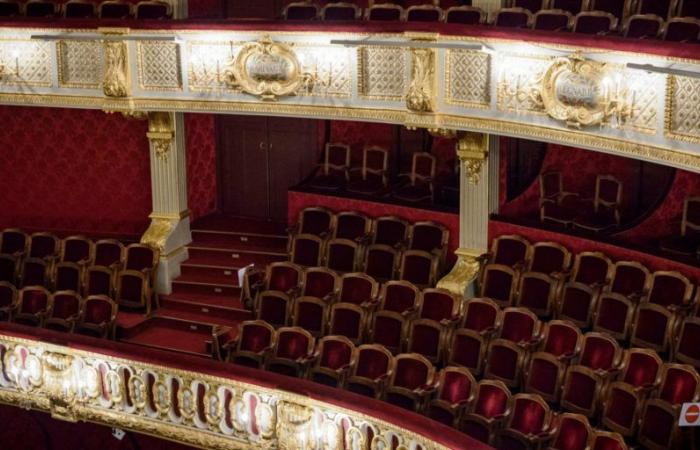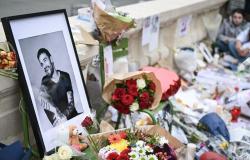Clothes donated by the public to dress the actors, sets made from objects brought, all then redistributed to solidarity associations: this is the device of Molière’s play, “The Miser”, revisited by the director Clément Poirée. “Today, we have a kilt, a buoy, a saucepan!”, an actor enthuses into the microphone, on the stage of the La Tempête theater in Paris, during a performance attended by a journalist from the AFP.
In a joyful hubbub, the spectators, previously invited to empty their closets, unpack their bags and shopping bags in order to clothe a scantily clad troop who marvel at each donation. Throughout the play, costume designers and make-up artists, discreetly stationed on the stage between bins and rolling gantry cranes, work to create, for Elise, Cléante, Mariane or Frosine, toilets, adornments and wigs which are certainly unstitched, but in the shape of a nod to the 17th century.
“We have a skeleton of a show. And then we wait for people to feed it,” summarizes Clément Poirée, speaking of a “Stingy Miser”. “We left with very little because it was important for us to bring this question to life: today, what is donation, what is spending? Who is ready to give?” It is “at the heart of Molière’s problem”, with “paradigms (which) have changed a lot”.
“Depending on what we have, the representation will take on a different color,” he laughs. A biscuit tin becomes Harpagon’s famous cassette, while a teapot, soft toys and trinkets are used for the final banquet. Surreptitiously, lighting designers transform clothes into wall lights affixed to spotlights.
Exchanges and discovery
According to Clément Poirée, what Molière highlights – “the capture of goods by a single person who does not want to let go of anything, leave nothing to their own children” – is “at the heart of what we are going through”, in a society that has become “society of possessors”. But some of the playwright’s replies take on another meaning with “(current) reflections on decline, reuse, measurement”.
Every evening, until October 20 in Paris, donations are sorted, stored in a container before being redistributed to an association working in solidarity reuse, the La petite Rockette resource center (12th arrondissement).
Delphine Terlizzi, general coordinator, expects to receive “100 to 200 kilos of donations per performance”. “Beyond the collection, what interests us are the exchanges between two worlds and the discovery of theater”, particularly for people in professional transition within her team, she says. The troupe was trained in sorting and had clothes lent for rehearsals by the association.
In the cities of the tour planned next (Avranches, Sartrouville, Vendôme, Maisons-Alfort, Nancy, Verdun…), the lists of local resources were given to each theater. During the first performances, donations were surprising, such as a wheelbarrow or a mask by François Bayrou.
“People were very generous,” according to the director. Even this evening when no pants had been brought, “it was very funny, we had to invent with this absence”.






